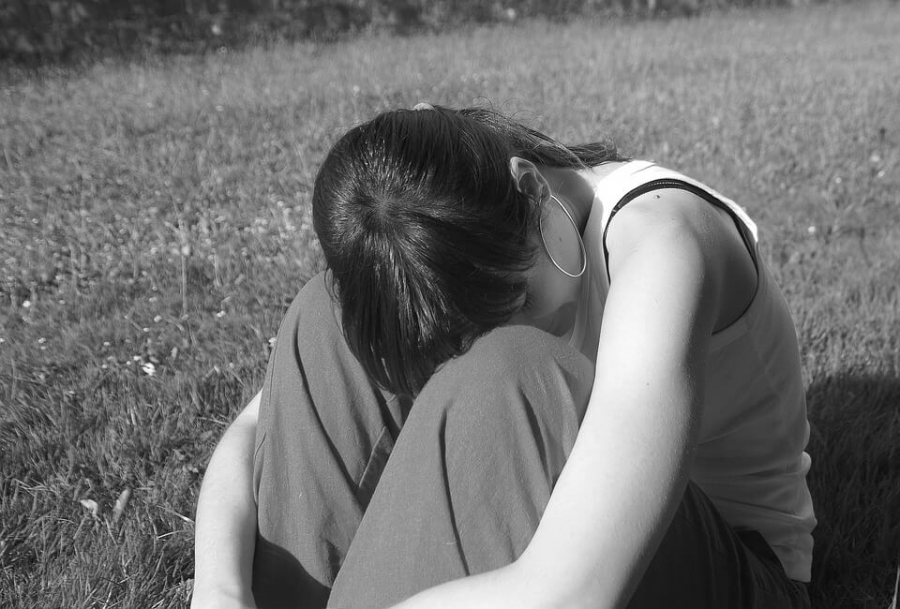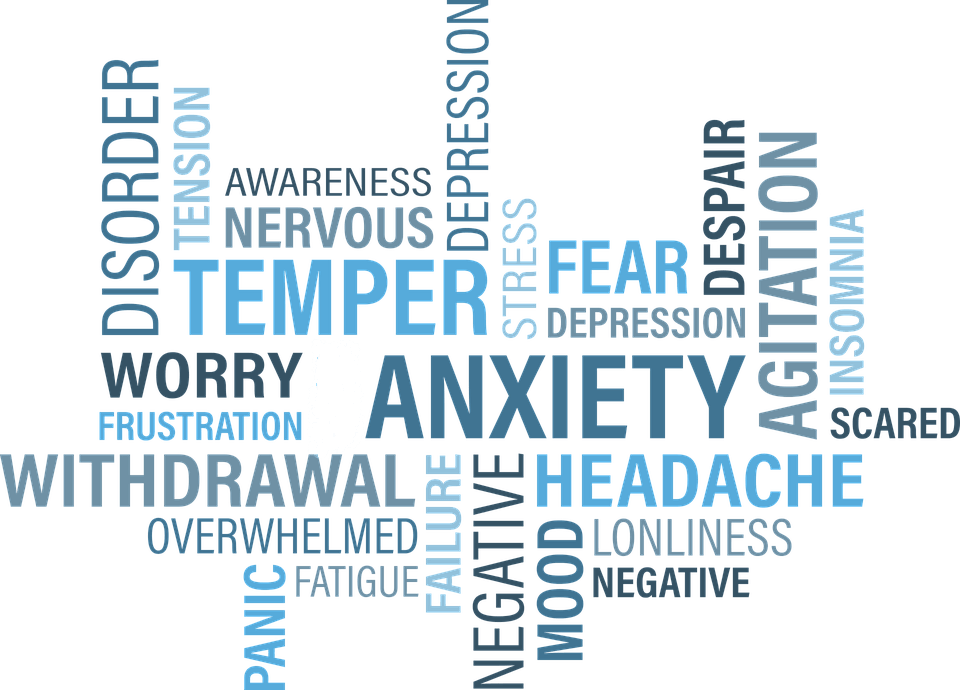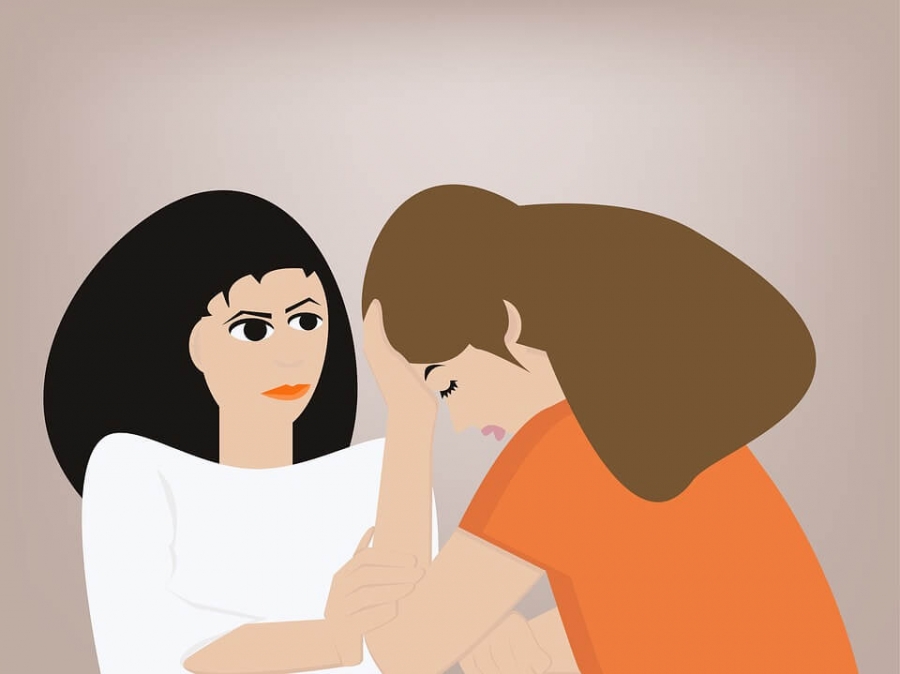Motherhood is one of the greatest moments in a woman’s life. Birth of a baby ushers in a new wave of happiness, not just for the woman concerned but for her entire family. In this joyous occasion, is it possible that anybody can be unhappy? Especially the mother, in question? It seems that this unforeseen event is much more common than what can be logically anticipated. This unfortunate condition has been described as Postpartum Depression, which is an extreme form of depression, related to pregnancy and childbirth. It is much more common than generally thought of, with some studies demonstrating that approximately, 1 in 7 mothers suffer from postpartum depression after childbirth.

Depression after a baby is born is not always a sign of a major underlying problem unless associated with other major symptoms. Most of the new mothers, experience some mood alterations after the birth of a baby, which can be considered as almost a normal phenomenon. For lack of better nomenclature, it is known as “Baby Blues”.
Baby Blue Symptoms, begin 2 to 3 days after childbirth and lasts from a few days to two weeks. Besides unexplained sadness and crying spells, the new mother demonstrates - mood swings, strong emotional effects, anxiety, irritability, lack of concentration, difficulty falling in sleep and appetite problems. Baby Blue symptoms, spontaneously resolve after 1 to 2 weeks.
In most cases, the mood swings after birth of a child stabilize on its own, without any practical ill effect on the concerned family. However, in certain cases, a long-lasting form of depression, which can interfere with the new mother’s ability to care for the baby and the ability to attend to daily rituals of family life, is seen. This exaggerated emotional response known as Postpartum Depression lasts much longer than Baby Blues, and the signs and symptoms are much more intense.

The symptoms of Postpartum depression usually develop a few weeks after the birth of a child, but sometimes may also develop during pregnancy or later anytime up to a year after childbirth. The symptoms of Postpartum depression are –
Postpartum depression in fathers, with newborn babies, does look a lot like postpartum depression in mothers. Postpartum depression in men, more commonly manifest in those who are in a mentally disturbed state, even before delivery of their child. These are especially seen in men of young age, who may be facing financial instability, & living in unsatisfactory relationships. Many also have a previous history of depression.
Postpartum depression for males is also much more common than what was previously thought of, with a study showing that approximately 10 percent of new fathers suffer from prenatal or postpartum depression. The highest incidence is seen 3 to 6 months after childbirth.

These cases of paternal postpartum depression also present with a feeling of sadness, excessive unexplained weakness, anxiety & irritability, with alterations of sleeping and dietary habits. The symptoms which are almost the same as those of females, also impair the day to day functioning of the new father.
Postpartum depression causes are multiple and many different aetiologies have been proposed as the causative factors. However, postpartum depression reasons can be broadly categorized into 3 categories -
After childbirth, there is a significant drop in female sex hormones (estrogen and progesterone), which has been postulated by many researchers as being responsible for postpartum depression. The decrease in thyroid hormones, that may also occur after childbirth can contribute to the problem.
Motherhood brings the responsibility of caring for another life, which may make the new mother excessively nervous and she may feel a loss of control over her own life. The additional responsibility may give rise to sleep deprivation, leading to additional problems. Changes in the shape of the body may make the woman feel less attractive, contributing to an identity crisis. All these factors can contribute to postpartum depression.

Although any woman can develop postpartum depression after childbirth, the presence of certain risk factors certainly increases the possibility of development of postpartum depression. Some of these are
Many women who feel depressed after the birth of a baby, feel reluctant to seek help, fearing that they would be viewed as a bad mother if they admit to their problem. Most cases of Baby Blues, as discussed earlier goes away on its own without any major problem. However, if the symptoms do not go away within two weeks, or get worse with time, or affects daily life & work schedule, impairs one’s ability to take care of the baby; then it is time to seek medical help. Thoughts of self-harm or the wish to harm the baby require urgent medical consultation.
Postpartum Depression, if not treated can be extremely dangerous. Study says that turmeric curcumin contains the property which can help to reduce oxidative stress.
Establishing the Postpartum depression diagnosis, by a registered medical practitioner is of paramount importance, before deciding on any treatment. An honest conversation with the doctor, that would help the health practitioner, to understand the mental condition of the patient, goes a long way in establishing the diagnosis. Sometimes, a blood test to estimate thyroid hormonal levels has to be undertaken to rule out the decreased function of the thyroid, which may sometimes contribute to the signs and symptoms.
If Baby Blues lasts for more than 2 weeks medical treatment should be sought for. After understanding the symptoms of the patient, as well as its severity, the doctor formulates the plan of action, which may vary from person to person, depending on the severity of symptoms. Some of the common modalities used are –
Sympathetic postpartum depression counseling with a psychiatrist or a psychologist can allay any fears of the skeptical mother (or father). Counseling would enable the unfortunate people suffering from the condition, realize that their symptoms are nothing to feel guilty of, but a medicinal problem that needs specialized care. Improvement of interpersonal relationships within the family, with encouraging support & empathy for the new mothers, from other members of the family is always useful.

In postpartum depression medication is advised, if the symptoms are severe and are not suppressible by postpartum depression counseling alone. Antidepressant medications should be used only under medical supervision. Medications taken by a mother who is breastfeeding may reach the baby, hence all medications should be weighed first to analyze the potential risk to benefit ratio.
A new drug named – Brexanolone, which is given by infusion, over a course of 3 days, has been demonstrated to bring almost immediate suppression of the symptoms. However, it should be taken only under expert medical supervision. Women who do not want to get pregnant again and are contemplating about contraception should choose some other alternatives than birth control pills, which can sometimes increase the symptoms of depression.
Sometimes postpartum depression may take longer than normal duration to improve. Symptoms may increase before menstrual periods, as the hormonal level fluctuates. Even if the improvement is seen with medications, they should not be stopped, without counseling the doctor first. Doing so may lead to relapse, and return of old symptoms. Presence of hallucinations, delusions, and suicidal thoughts may rarely need more radical treatment like – Electroconvulsive therapy, which is used only when medications have failed to demonstrate results.
–In addition to seeking professional help, simple lifestyle alterations and healthy lifestyle choices can also go a long way in alleviating the problems. Eating healthy foods, taking adequate rest, going for a walk with the baby helps in getting back to a normal life. Taking time to pursue one’s hobbies or things that gives happiness, lightens up the mood. Spending quality time with friends and partner also refreshes up the mood.

Avoiding isolation & discussing one’s problems with other new mothers & seeking help from family members for household chores certainly helps. Whenever there is an issue, which the new mother finds overwhelming, help from family members, relatives and friends should be asked for. Massage sometimes also improves symptoms, which can be easily given in the confines of home. Finally, the age-old method of meditation has also been seen to give benefits to many patients.
Failure to seek timely medical intervention in some conditions can lead to certain Postpartum depression complications. Mothers who avoid professional help because of embarrassment can lapse into a chronic depressive disorder, which can last for months & sometimes longer. Sometimes even with the right treatment, the chances of future attacks of depression may remain. If a new mother is depressed, there is a good chance of the emotions being transferred to the father, causing paternal postpartum depression.
Even the newborn children of parents suffering from postpartum depression, demonstrate emotional and behavioral problems. These can manifest as – diet irregularity, insecurity, excessive crying, temper tantrums, sleeping disturbances and delay in speech development.
To take correct steps for the avoidance of postpartum depression, it has to be anticipated first. That is possible only if there is a previous history of postpartum depression (or any other depression) and the woman is planning to get pregnant in immediate future or is already pregnant. Then there is the 2nd less common scenario, where the doctor supervising a first-time pregnant woman, finds her mental status different from normal & investigates further. A prior knowledge about risks factors (by the health supervisor) which can precipitate postpartum depression, later on, can help a lot in diagnosing these cases in early stages.
If there is a previous history of postpartum depression, medical supervision should be taken from the pregnancy itself. The supervising doctor may undertake to screen of the pregnant woman and ask relevant questions. She is monitored closely by the supervising physician for the signs and symptoms of depression. The earlier the problem is detected; the better postpartum depression management can be done.

Even if there is the slightest anticipation of the possibility of postpartum depression development is observed, suitable precautionary measures are taken, from the period of childbirth. In mild cases, psychotherapy or group counselingis considered ideal, in more severe cases antidepressants may be advised after childbirth (rarely even during pregnancy), after discussing the risk of side effects of the drug with the patient and family members.
Unfortunately, many new mothers (and sometimes fathers) can’t express their true feelings to their near and dear ones. They believe admitting to the symptoms may prove their inadequacy as mother/father and they fear that their baby would be taken away from them. In these situations, a sympathetic but sharp observation of the problem can bring about a timely remedy to the situation.
A team of doctors comprising – Obstetricians, Psychiatrists and Psychologist can give a very satisfactory solution, to a problem which has the ability to disrupt the peace of home. A little watchful observation of near and dear ones and timely help from the doctors can certainly ensure that childbirth becomes a happy and memorable occasion, which it is supposed to be.